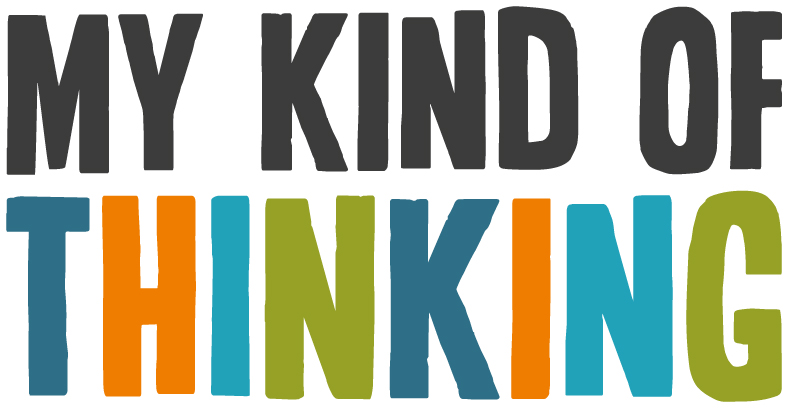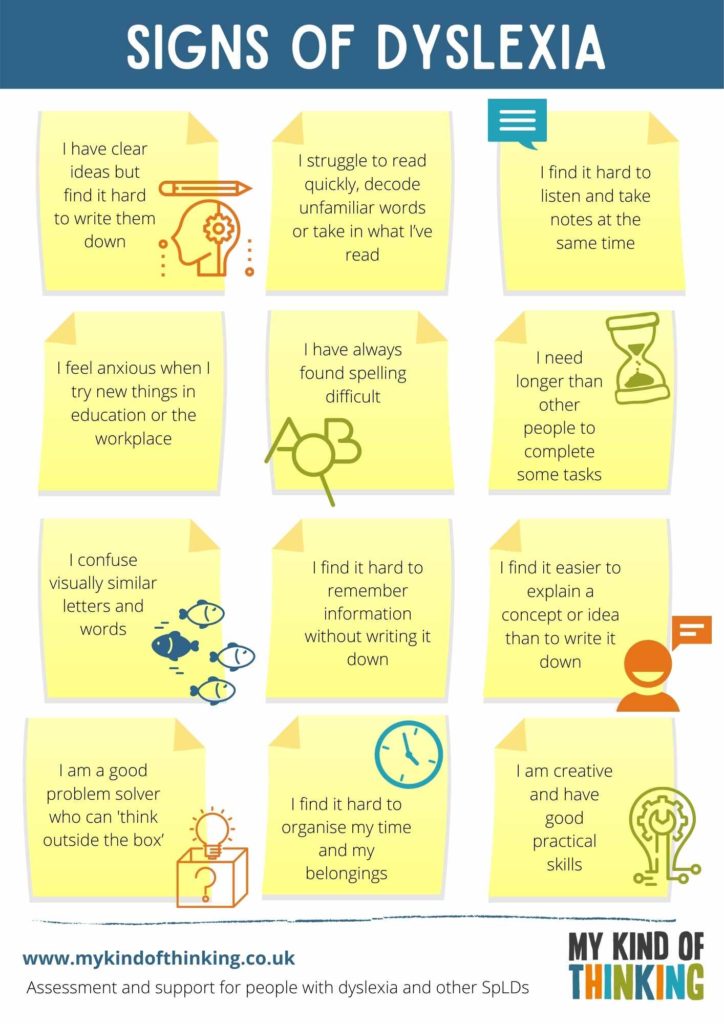
With 1 in 10 people thought to have dyslexia, the majority of which go undiagnosed, difficulties are not always recognised, and many adults fail to reach their full potential. Although most people associate dyslexia with difficulties with reading and writing, it is more often the secondary effects of dyslexia such as anxiety, low self-esteem and lack of confidence that present the greatest barriers.
The signs of dyslexia vary depending on the individual’s age and therefore the types of support needed are also likely to vary. The signs of dyslexia will also depend a little on the area of cognitive function that an individual has difficulty with. For example, if an individual has poor working memory, they may struggle to take notes in lessons, or struggle to complete longer mathematical problems presented orally. Those that have weak phonological awareness (the understanding of the link between the sounds in words and the letters), are likely to find it hard to spell with accuracy or read more complex words.
Often it is having an understanding of the signs of dyslexia which are the first step to an individual getting an assessment and pinpointing the most effective strategies for them as an individual. There are a number of places to start if you suspect dyslexia in either your child or yourself. The British Dyslexia Association have a section on their website dedicated to each educational phase. This can be found at: https://www.bdadyslexia.org.uk/dyslexia/about-dyslexia/signs-of-dyslexia
Download our signs of dyslexia poster
We have also drawn together some of the common signs of dyslexia into a simple poster. Beware! This list is not comprehensive and people with dyslexia may exhibit a couple or many of these signs. In addition, they may exhibit others not mentioned here.
If you have any questions, please do get in touch at info@mykindofthinking.co.uk or if you suspect you or your child may have dyslexia, please speak to us about our comprehensive dyslexia assessment service.
Signs of dyslexia poster – Click on the image shown, or click here to open a full size version of this poster.



